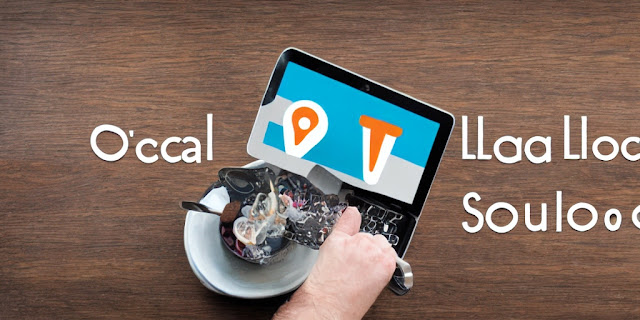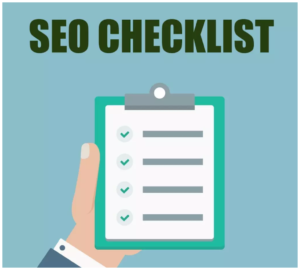When you need to find a restaurant or a nearby car repair shop, what do you do? You go online and search for it! You might not realize it, but you’re probably already used to looking for local places online. And you’re not alone. In 2022, 78% of people checked for local business information online at least once a week. So, if your business has a physical store or location, make sure people can find you! To make that happen, you need to use local search engine optimization (SEO).
What is Local SEO all About?
Local SEO is a way of marketing your business online that focuses on making it easier for people in your area to find you. It involves improving your website, business listings, and mentions of your business online so that when someone searches for what you offer in your city, they can easily find you.
For example, if someone in Los Angeles searches for a car dealership, they might type in “car dealership in Los Angeles, California”. To make sure your business shows up in these local searches, you need to use different strategies and tricks. Doing this well will help your business appear higher up in local search results.
Why is local SEO Important for My Business?
If your business serves a specific town or area, local SEO is really important. And it’s likely to be even more important in the future. Even if you’re already working on regular SEO, it’s a good idea to focus on local SEO too. The people nearby could be your future customers, so it’s important not to miss out on the chance to get noticed by them.
Besides making more people aware of your brand online, local search is a big reason why local businesses get more customers, sales, and visitors to their stores. So, the real question is, “Why wouldn’t your business care about local SEO?” The only downside might be the time and money it takes to invest in it. But don’t stress about it—depending on what keywords and methods you’re using, you might already be doing some local SEO without even knowing it!
How does Local SEO Work?
Local SEO is really important for businesses that want to attract customers from a certain area, like a city or neighborhood.
It mainly focuses on three important things: relevance, distance, and prominence.
Relevance
Relevance is about how much a business’s online info matches what someone is looking for.
To boost relevance in local search, businesses should make sure their online listings, website, and keywords are all set up right for their target area. This means using keywords that relate to the location and sharing helpful, local-focused content on their website.
For example, if you have a blog about local SEO, you might write articles with tips and tricks about how businesses can improve their local SEO to connect better with your audience and be more relevant to their searches.
Distance
Distance is really important in local Search Engine Optimization (SEO). When you search for something nearby, search engines like Google & Bing use your location to show you results that are close to you.
Businesses that are closer to where you are have an edge in local search. To boost how high up they show in search results, businesses need to make sure all their information, like their address and phone number, is right and the same everywhere online.
Local SEO services can help with this by making sure all the info is consistent and helping to optimize it for search engines.
Prominence
Prominence is about how well people know and trust a business in their area.
It’s influenced by things like online reviews, links to the business from other websites, how active the business is on social media, and mentions from trusted sources.
To boost prominence in local SEO, businesses can ask happy customers to leave good reviews, work on getting links from other local websites, and stay active on social media.
A local SEO company can help with all these things to make sure your business stands out more online.
Make the Most of these Local SEO Tricks
To use local SEO for your business, try these steps:
- Localized website content
- Claim your Google Business Profile
- Fill out listings and directories online
- Capitalize on customer reviews
- Localized website content
1. Localized Website Content
One of the main tricks for local SEO is to put info about your location on your website. You can do this in a few ways. First, make sure your name, phone number, and address are easy to find. Most businesses put this information in the header OR footer of a website, and also on the Contact Page.
Next, you can write website and blog posts that focus on local keywords. For example, if you’re a dentist and you want to show up when people search for “New York City Dentist,” you could use that phrase on your website. Adding location to your keywords optimization is a big part of local SEO.
But be careful not to use too many keywords! Some people try to put lots of keywords everywhere on their site and listings, but search engines don’t like that. They think it’s spammy and might push your stuff down in search results. Instead, use the keywords naturally in your writing. Put them in your titles, headings, and descriptions, and even in the words that describe your pictures. That’ll help you show up better in searches.
2. Claim your Google Business Profile
Google is the biggest search engine around, with 92% of people using it to search online. So, it’s really important to claim and set up your free Google Business Profile (which used to be called Google My Business).
Your Google Business Profile shows up when someone searches for your business name, location, or things related to it on Google or Google Maps.
To make the most of this free listing, include as much info about your business as you can. At least, put your name, address, and phone number, known as your “NAP” info. But you can also add things like your website, opening hours, and reviews.
To learn how to set up your Google Business Profile properly, you can use a guide from the Search Engine Journal.
3. Fill Out Listings and Directories Online
The internet is full of websites where businesses can be listed, called listing sites and business directories. These websites show businesses in certain areas or types of businesses. They show your business name, phone number, address and other information so people nearby can find you.
Just like with your Google Business Profile, it’s important to fill out these listings as much as you can. Make sure to include your name, address, and phone number. Some popular listing sites you might want to use are Bing Places, Yelp, Whitepages, and Foursquare.
4. Capitalize on Customer Reviews
Did you know that nearly half of local consumers trust online reviews just as much as they trust recommendations from friends or family? It’s clear that online reviews play a big role in making your local SEO strategy successful.
When you’re working on local SEO to make sure your business shows up well in search engine and on maps, you want to make a good impression. You don’t want to be at the top of the search results but leave a bad first impression, right? Most people feel good about a business when they see positive reviews, so it’s important to get real positive reviews from your customers.
Remember, reviews aren’t only on Google. Some businesses focus on getting reviews on places like Yelp and Facebook. But there might be other websites that are good for your business too. Think about asking customers to leave reviews on websites that focus on your industry. For example, if you have a hotel or a restaurant, you might ask customers to leave reviews on TripAdvisor. Or if your business is about weddings, you could try to get reviews on The Knot. Do some research to find out which review sites are best for your business.
Besides getting more attention online, these review sites also have links back to your website. These backlinks help bring more traffic to your website and make your business seem more trustworthy online, which helps with your local SEO goals.
Local SEO Tools
Google My Business (GMB): Google My Business is really important for local SEO. It lets businesses make and control their online listings on Google. You can put your business name, address, phone number, and when you’re open. These listings show up in local search results, on Google Maps, and in Google’s Knowledge Graph. That makes Google My Business super important for local SEO. It’s really important to set up and keep your Google My Business listing updated properly if you want to do well in local searches.
Google Search Console: Google Search Console gives you helpful information about how your website does in Google searches. It helps you see how many people visit your website, find any problems when Google checks your site, and understand how Google’s tool called Googlebot works with your site. When you look at this information, you can make your local SEO plan better, make your website better for local searches, and make sure your website shows up well in local searches.
Other Local SEO Best Practices
- Make your website mobile-friendly: Since many people search for local things on their phones, make sure your website works well on mobile devices.
- Use structured data markup: Add structured data markup (schema.org) tags to your website to provide search engines with more information about your business, such as business name, address and phone number and others information.
- Get local backlinks: Make connections and make backlinks from local websites, directories, and groups to enhance your location authority.
- Get involved with your local community or Influencers: Take part in local events, support local groups, and work with people or businesses who are important in your area. Doing this can lead to new connections and links to your website.
- Support local events and groups: Sponsor local events, sports teams, or charities. This helps your community and also gets your name out there more, with potential links from their websites.
- Keep an eye on reviews and feedback: Check online reviews regularly and respond quickly, whether they’re good or bad. This shows you care about your customers.
- Optimize for “near me” searches: Make sure your website and content are set up to show up when people search for things near them. Use words and phrases that mention your location. This is important because more and more people are using their phones to find stuff nearby.
- Create user-generated content: Ask your customers to make and share their own stuff about your business, like photos, videos, and reviews. This gets people talking about you and gives you new, real content that can help more people find you in local searches.
Monitor Your Local SEO Results and Keep Optimizing
Local SEO is an ongoing process affected by various factors, so your website’s rankings for local keywords can change a lot. If your rankings go down, it might mean fewer people visit your site, which could hurt your business.
To deal with this, it’s important to keep an eye on how your local SEO is doing. One way to do this is by using keywords Position Tracking. This tool lets you watch your local word rankings closely, right down to the area code, and see what shows up on search engine result pages (SERP).
By always checking your keywords rankings and changing what you’re doing based on what you see, you can do better in local searches, make sure more people see you, and get more people to visit your site, which helps your business succeed.
Common Questions About Local SEO (Search Engine Optimization)
Q1. What is Local SEO?
Ans: Local SEO stands for Local Search Engine Optimization. It’s about making a business more visible in local search visibility by improving its online presence. This strategy focuses on attracting nearby customers by targeting specific geographic areas.
Q2. What does Local SEO Mean?
Ans: Local SEO is a way of marketing online that aims to make a business more visible in local search results. It includes improving website content, business listings, and citations to reach potential customers who are searching for products or services in a particular area.
Q3. How is Local SEO Different from Regular SEO?
Ans: Local SEO focuses on attracting customers in specific areas, while regular SEO tries to improve visibility in general online searches. In local SEO, things like Google My Business, local listings, and customer reviews are very important, which might not be the case in regular SEO.
Q4. Why Do Businesses Need Local SEO?
Ans: Local SEO is really important for businesses because it helps them reach people in their area. It makes them easier to find in local searches, brings more people to their store or website, and increases online sales. This focused approach also builds trust and makes the business more respected in the community.
Q5. What’s Important in a Local SEO Strategy?
Ans: A good local SEO plan includes things like setting up a Google My Business profile, finding local keywords, creating pages on the website about specific locations, making sure all the business info is the same everywhere, getting listed in local directories, getting good reviews, and making sure the website works well on phones.
Q6. How can I Make My Website Better for Local Searches?
Ans: To make your website better for local searches, try using local keywords in the titles, descriptions, and content. Create location-specific landing pages for different locations, make sure your business information is the same everywhere, and ask customers to leave reviews.
Q7. What’s the Best Way to Handle Local Business Listings?
Ans: To manage local business listings well, make sure all the info is correct on places like Google My Business, Yelp, and Bing Places. Reply to customer reviews and talk to your customers to build a good reputation online.
Q8. Are there Tools to Help with Local SEO?
Ans: Many tools can help with local SEO, like Google My Business for managing listings, Moz Local for citations, and SEMrush for finding keywords. Also, local SEO blogs and guides give helpful advice for making it work well.
Final Thoughts: Kickstart Your Local SEO Plan
Now that you grasp the importance and mechanics of local SEO in business success, it’s time to put your strategy into action! Start with our advice and keep a close eye on your local search presence as you go.
Have you ever tried a local SEO plan? What strategies did you employ? Feel free to share your experiences with the community in the comments section below.




